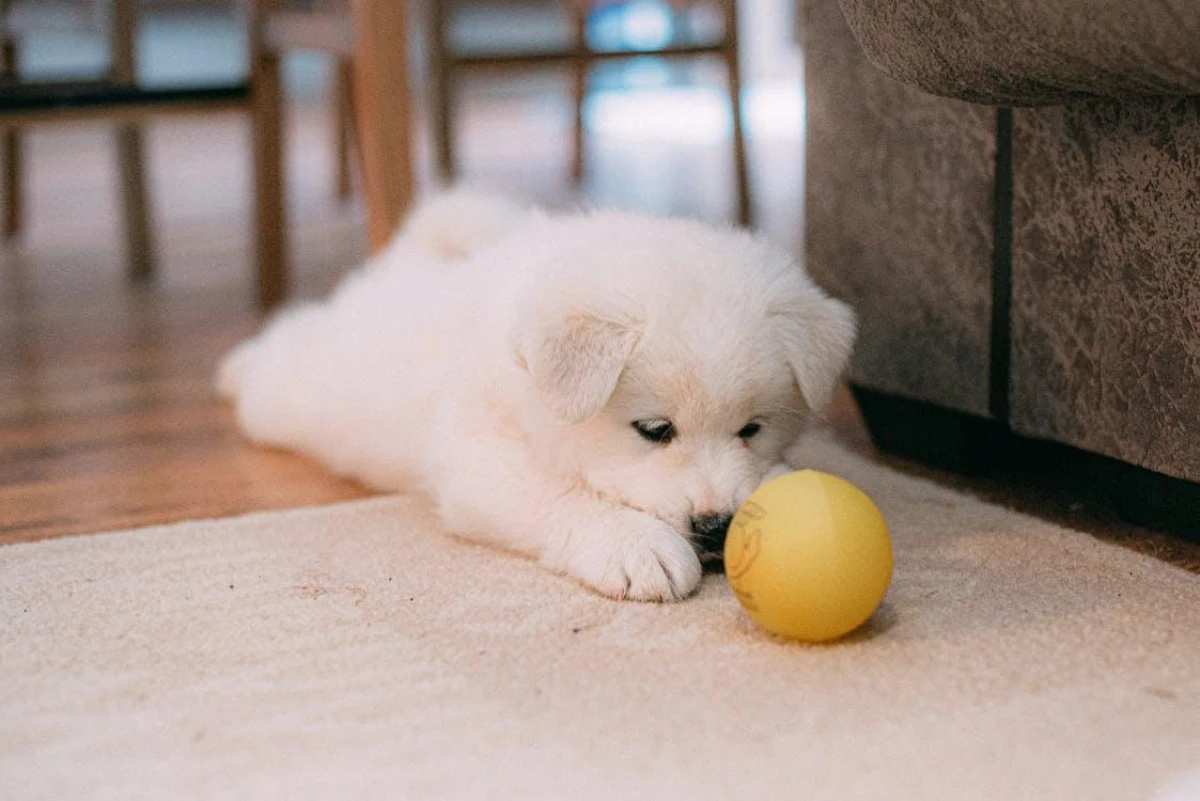Bringing a new puppy into your home is an exciting milestone, especially in a pet-friendly city like Los Angeles. With its dog parks, sunny weather, and abundance of pet resources, Los Angeles offers a great environment for raising a happy and healthy puppy. For first-time owners, welcoming a furry friend can feel overwhelming at times, but with the right preparation and approach, the experience can be enjoyable and fulfilling.
Starting this journey requires understanding your puppy’s needs and creating a safe, welcoming space for them to thrive. From planning their arrival to beginning basic training, every step contributes to building a strong bond and a happy home for your puppy.
Preparing for Your Puppy’s Arrival
Before your puppy comes home, it’s essential to get your space ready for their arrival. Start by setting up a designated area where they can feel secure. A cozy bed or crate can provide a comforting spot for rest, and it’s a great tool for establishing boundaries early on.
Puppy-proofing your home is another crucial step. Remove items that could pose a hazard, like electrical cords, small objects, or toxic plants. Puppies are naturally curious, so keeping dangerous items out of reach will help prevent accidents.
Stocking up on supplies is also important. You’ll need essentials like high-quality puppy food, water and food bowls, grooming tools, a collar, leash, and toys. Toys, especially chewable ones, are key to redirecting your puppy’s natural chewing instincts away from furniture or shoes.
Early Training and Socialization
Training and socialization are critical in helping your puppy develop good behavior and confidence. While it’s possible to start with basic commands like “sit” and “stay” at home, for first-time owners in Los Angeles, professional help can make the process smoother and more effective. A Los Angeles dog trainer can offer expert guidance tailored to your puppy’s needs. Working with a skilled trainer can help you address challenges like housebreaking, leash manners, and early obedience. This support is particularly valuable for teaching consistent routines and shaping positive habits.
Socialization is equally important, especially in a bustling city like Los Angeles. Introducing your puppy to different environments, people, and other dogs helps them feel comfortable and well-adjusted. Dog-friendly spaces are excellent spots for safe, supervised social interactions. Combining early training with opportunities to explore the city builds confidence and strengthens your bond with your puppy.
Setting a Routine for Your Puppy
A consistent routine is one of the most effective tools for raising a happy and well-behaved puppy. Puppies thrive on structure, which helps them feel secure and understand what to expect each day. Start by establishing regular feeding times. Feeding your puppy at the same times daily will help regulate their digestion and make potty training more manageable.
Bathroom breaks should also follow a consistent schedule. Puppies need to go outside frequently, especially after meals, naps, or playtime. Being consistent with these outings helps your puppy learn where and when it’s appropriate to relieve themselves. Rewarding them with praise or a small treat after successful trips outside reinforces good habits.
Playtime and exercise are equally important. Set aside specific times each day for walks, play sessions, and interactive activities. This helps your puppy burn off energy and also strengthens the bond between you. Whether it’s a short game of fetch or a stroll around the neighborhood, these moments become a highlight of their day.
Health and Wellness Basics
Keeping your puppy healthy is key to their growth and happiness. Scheduling a vet visit shortly after bringing your puppy home is a priority. The vet will perform a general health check and start vaccinations if needed. These visits also provide an opportunity to discuss flea and tick prevention, as well as deworming treatments.
Nutrition is also fundamental to your puppy’s well-being. Choose a high-quality puppy food suited to their breed, size, and age. Avoid giving them human foods that could upset their stomach or be harmful. Fresh water should always be available to keep them hydrated.
Grooming is essential for their hygiene and overall health. Regularly brush your puppy’s coat to reduce shedding and prevent matting, especially if they have long hair. Nail trims, ear cleaning, and dental care should also be part of the routine. Starting these practices early helps your puppy get used to being handled and makes grooming sessions stress-free.
Managing Common Puppy Behaviors
Every puppy comes with a set of challenges, but understanding and addressing these behaviors early can make a big difference. Chewing is a natural behavior for puppies, especially when they are teething. To protect your belongings, provide plenty of chew toys and redirect their attention when they start chewing on inappropriate items.
Barking can sometimes become excessive. While it’s a normal way for puppies to communicate, teaching them the “quiet” command can help control it. Be consistent and use positive reinforcement when they respond correctly.
Jumping is another common issue. Puppies often jump to greet people or get attention, but this behavior can become problematic as they grow. Teach your puppy to sit as an alternative way to get attention. Ignoring them when they jump and rewarding calm behavior helps them learn what’s expected.
Patience and consistency are essential when managing these behaviors. Puppies learn through repetition and rewards, so stay positive and focus on reinforcing the actions you want them to repeat.
Social Activities and Enrichment
Keeping your puppy engaged both physically and mentally is vital for their overall development. Physical exercise is important, but mental stimulation is equally valuable. Interactive toys, such as treat puzzles, challenge your puppy to solve problems and keep their minds active.
Socializing your puppy with other dogs and people is a great way to build their confidence. Arrange playdates with other pet owners or visit dog-friendly spots. Interacting with different environments, sounds, and smells helps your puppy adapt and reduces fear or anxiety in unfamiliar situations.
Balancing these activities creates a well-rounded experience for your puppy. They’ll be happier, healthier, and better behaved when they have outlets for their energy and curiosity.
Raising a new puppy is a journey filled with challenges and rewards. By setting routines, prioritizing health, addressing behaviors, and spending quality time together, you’ll create a loving and happy home for your furry companion. The early days of training and bonding lay the groundwork for a lifetime of joy and companionship. With patience, commitment, and a little guidance, first-time owners can make their puppy’s first year one to remember.














